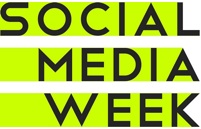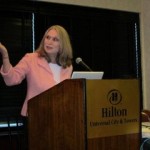How Social Media is Redefining Journalism
It was an honor to be a featured speaker at the Society of Professional Journalists’ “Best of the West Conference 2012 Spring Conference” with the latest trends in social media marketing. Being held the day after Facebook officially transferred to the Timeline for their Pages, there were many questions being asked about privacy, accuracy, and how you become your brand as you curate and report on news stories.
With breaking news stories online, accelerated deadlines of instantly reporting the news, often journalists and web enthusiasts have made mistakes rushing to the digital plate to post the first tweet.
Some key points for journalists to note are:
- Deadlines are now immediate.
- Breaking news and trending stories are online.
- Reporters are now real people posting videos.
- Glossy magazines and newspapers have been replaced with blogs.
- How social media played a key role in the Arab Spring: Protests in Egypt, Tunisia Revolution and Middle East.
We looked at the example of social media and death reports. When Osama bin Laden was reported dead on May 1, 2011, it was tweeted over 5000 times per second. With the excitement, many broke the rules of netiquette and used the incorrect hashtag of #obamadeath instead of #osamadeath. Fortunately, our President was alive-and-well.
Maintaining your digital and journalist reputation, often you need to pause to be certain of the facts. Once you press the send button, you can’t take it back and may create a permanent digital footprint.
We reviewed the latest social media statistics including:
- Twitter: Over 225 million members with 250 million tweets being sent daily.
- Linkedin: Over 150 million business professionals.
- Facebook: Over 845 million members.
- Pinterest: Over 10 million members and drives more traffic to websites than Google+, Linkedin, and YouTube combined.
I was joined by Ellen Olivier, founder of Society News LA who discussed her career as the society columnist at the Orange County Register to the Los Angeles Times. Olivier successfully migrated from print journalism to online by creating her an online magazine covering society news stories in the region. In less than one year, ranks #1 in her keywords.
Following our presentation, we attended the “Mark of Excellence Luncheon,” where the keynote speaker was Tom Goldstein of The Bay Citizen. Goldstein is interim dean, professor of Journalism and director of the Media Studies Program at UC Berkeley’s Graduate School of Journalism.
After the awards ceremony, Frank Mottek, host of the “Business Hour” on KNX – Los Angeles, moderated a panel entitled, “Freak Out!”
Mottek shared the details of his radio career, where he started on the air at WINZ in Miami. He then covered the maiden flight of the Space Shuttle Atlantis on October 3, 1985. At the young age of 23, Mottek covered the tragic Space Shuttle Challenge launch with CBS Network’s correspondent Christopher Glenn and shared that experience with those in attendance.
Mottek was joined by KNX reporter Diane Thompson, CBS News editor David J. Singer, and Crisis Intervention Specialist Leslie Seppinni. Together, all four discussed how reporters can become emotionally devastated while on the job covering tragic events. One can only imagine if Twitter were around during the Rodney King riots or the Challenger explosion, what photos would be shared via Twitpic, Flickr, and Instagram.
At the end of the digital day, I reminded everyone to “Blog like you’re the best, Tweet like no tomorrow, and have them fall madly in Like with you on Facebook.”
Many thank to Jeff L.Wald for inviting me to speak at SPJ’s Spring Conference on Technology and Social Media.
Follow @JulieSpira on Twitter


















